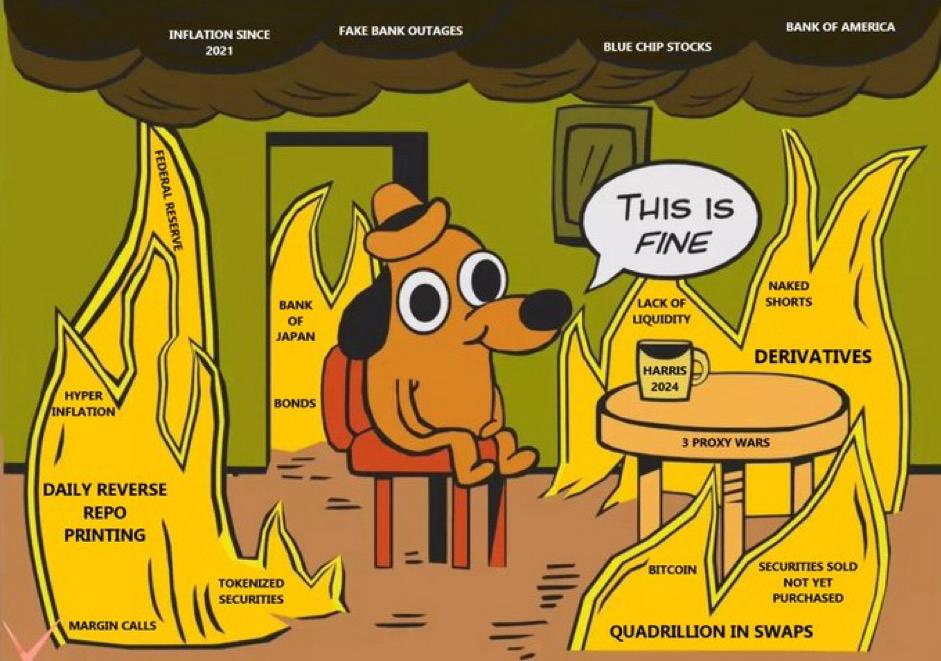
Everyone is familiar with the very large black bulky bag carried around by a U.S. military serviceman who isn’t more than a few steps away from the U.S. president at any time. Soon, a new red button will be added to the “Football”. Nuclear weapons are a deterrent meant not to be used, but to keep a certain degree of geopolitical order, right? In the same way, Section 899 of the “Big Beautiful Bill” will be a very special tariff that, if released, can wreak havoc on another country’s economy, and you can count on the fact that, once the bill is approved and signed into law, it will be a powerful threat the U.S. administration will use in its commercial negotiations with other countries. However, as I am going to explain shortly, this “nuclear tariff” is meant to be a deterrent because if released, it will surely trigger an economic counter-strike causing damages to the U.S. economy as well.
First of all, it is very important to understand what Section 899 is all about. Let me summarize it for you.
Subsection (a) – Increased Rates of Tax on Foreign Persons of Discriminatory Foreign Countries
This section imposes higher tax rates on individuals and entities from countries that enforce unfair taxes against U.S. persons. The increased rates apply to various taxes, including those on nonresident aliens, foreign corporations, and real property gains. The hike starts at 5 percentage points, rising by 5% annually (capped at 20% above the original rate). Special rules modify the Base Erosion and Anti-Abuse Tax (BEAT), raising its rate from 10.1% to 12.5% and tightening deductions. Withholding taxes on payments to foreign persons are also increased, except for the 14% FIRPTA rate. Temporary safe harbors protect withholding agents from penalties before 2027 if they make good-faith compliance efforts.
Subsection (b) – Definition of “Applicable Person”
An “applicable person” includes foreign governments, non-U.S. individuals, and corporations tax-resident in discriminatory countries. It also covers foreign corporations more than 50% owned by such persons, private foundations, trusts, partnerships, and other entities benefiting primarily from discriminatory tax regimes. If a person temporarily stops qualifying as an “applicable person” for less than a year, they remain subject to the increased taxes during that period.
Subsection (c) – Definition of “Unfair Foreign Tax”
An “unfair foreign tax” includes digital services taxes, diverted profits taxes, and extraterritorial taxes that disproportionately burden U.S. persons. Discriminatory taxes are those that target nonresidents, apply to income outside the taxing country, or lack deductions for costs. Exceptions apply to standard income taxes, VAT, sales taxes, property taxes, and taxes covered by double-taxation treaties. The Treasury Secretary can identify additional unfair taxes or grant exceptions.
Subsection (d) – Other Definitions
A “discriminatory foreign country” is any nation enforcing unfair taxes. The term “foreign country” includes political subdivisions and dependent territories (excluding U.S. possessions). The definition of “tax” encompasses not just rate increases but also base expansions, denial of deductions, or other adjustments that effectively raise liability.
Subsection (e) – Regulatory Authority
The Treasury Secretary must issue regulations to enforce these rules, including measures to prevent tax avoidance. The Secretary can provide exceptions, adjust rules for partnerships and branches, and ensure the BEAT modifications do not result in double taxation.
Now that it’s clear what we’re talking about, I will explain why not only many countries but also Wall Street and major companies are freaking out about it.
As of end-2024 data, it is estimated foreign investors hold abroad ~14 trillion USD worth of U.S. stocks, ~12 trillion USD of U.S. government bonds, and ~4 trillion USD of U.S. corporate debt. As of today, there is virtually zero U.S. withholding tax on gains on this enormous amount of assets. This was one of the key factors that favored the USD adoption as a global reserve currency, effectively the only one left today, but it is also one of the most exploited loopholes in the world to maximize profits while minimizing taxes due to the U.S., especially by U.S. domestic corporations. How? Very simple: thanks to sophisticated transfer pricing mechanisms, most of the profits are held outside of the U.S., and the cash piled up in favorable taxation countries like Ireland or Luxembourg is then reinvested into USD-denominated assets that remain held abroad. This is the reason why you see companies like Apple or Microsoft issuing onshore debt in the U.S. to pay dividends or buy back stocks despite the large amount of cash piled in their balance sheets. This loophole is also used by U.S.-based institutional investors like hedge funds that set up some of their operations abroad in jurisdictions like the Cayman Islands.
Section 899 is clearly not only a warning to foreign countries (more on this soon) but also a warning to corporations that have been exploiting the U.S. taxation regime greatly for many years, effectively depriving the country of a large amount of tax revenue that the U.S. is now more and more in need of. Exploiting this loophole was of great benefit to U.S. financial markets and those companies with ample access to it, but it also deprived the real economy of resources and capital investments, facilitating the accumulation of wealth among those who hold financial assets (a limited portion of the population). This, combined with QE, pushed things to an extreme level of wealth inequality everyone today is familiar with.
The threat to countries here is pretty straightforward, isn’t it? The U.S. government is laying the ground for labeling a large number of other countries’ policies as “unfair” and “discriminatory” and targeting them with a specific tariff that can wreak havoc on their domestic financial systems as a consequence. For example, what do you expect is going to happen if the U.S. tomorrow labels Ireland’s tax regime, notoriously very convenient for many corporations operating in the U.S., as unfair and discriminatory? Investors holding a huge amount of USD assets in those jurisdictions won’t take long to pick up the phone and call their lawyers and bankers to shift all those assets elsewhere, delivering a huge blow to Ireland first and to the European Union afterward because investors will surely assume similar measures will be extended to the union as a whole in order to close the favorable loophole exploited from the region for many years. If you think such a shift of capital from one region to another will be inconsequential, it is instead the complete opposite. Why do you think the European stock market, for example, is enjoying such a large amount of demand from foreign investors, disconnecting valuations from the real economy so much? The presence of that amount of assets in the region also translates into the presence of a large amount of collateral that financial intermediaries can access to fetch liquidity and reinvest it in Europe.
I am sure many of you will now argue that if the U.S. makes such a move, the reaction from foreign countries will be to dump USD assets, likely starting from U.S. government bonds, and this will increase the yield by an amount to compensate for the new tax expected. This is the theory, but in reality, this move is not as straightforward, and I bet Secretary Bessent knows it very well. Why? Because a large amount of USD debt assets held abroad are currently underwater in the market, and if these are sold, the holders will have to book a steep financial loss in their income statements. So in the short term, this nuclear tariff will be highly beneficial to the U.S. But what about the long term? The more USD debt matures, the higher the amount that is expected to be reinvested in foreign assets, especially by private investors, and this will gradually raise yields until these become attractive again for foreign holders who will now have to pay a tax on gains. Needless to say, this will significantly increase U.S. government debt costs in the long term, which will require a bigger amount of money printing to remain sustainable because I can guarantee you the new inflow of taxes will not compensate for the loss, as is usually the case. This is why Section 899 isn’t meant to be a global blanket tax but can be used effectively to target specific countries, favoring other U.S. allies that are more open to coming to terms with the U.S. administration on the commercial trade front and corporates that will be willing to deploy capital back into the U.S. economy.
By now there should be no more doubt about the “nuclear tariff” definition I gave to Section 899, a tariff that will be more of a threat than a real weapon the U.S. is willing to use because in the long term, it can create a dangerous precedent and push more countries to shift away from the USD as a reserve currency, effectively creating two “blocks” in the global economy. On one side, countries that will see limited to no damage from U.S. decoupling will move further away, while on the other side, countries that cannot live without U.S. consumer demand will be forced to bend the knee and become even more dependent on the U.S. Considering the growing amount of U.S. debt, a decoupling will surely decrease the long-term demand for U.S. government bonds with dangerous consequences for the global financial system, but if the U.S. administration ultimately comes to a point where they think it will be a risk worth taking because more taxes and re-industrialization of the U.S. economy will be of greater benefit and help repay the debt in the long term, then no one should be shocked if at a certain stage this nuclear tariff will be used in the same way the nuclear bombs were used on Hiroshima and Nagasaki to send a strong message to the whole world.
JustDario on X | JustDario on Instagram | JustDario on YouTube
